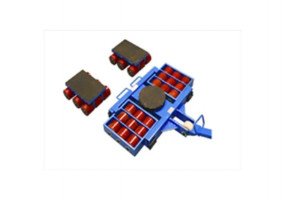- Home
- About Us
- Product
- Services
- Gallery
- Contact Us
Call Us
Container Parts & Accessories
Marine, Navigational & Floating Systems
Container Lashing
Cargo Strapping Products
Cargo Lashing Products
Lifting Sling & Accessories
Timber/Wood Packaging Products
Corrugated/Honeycomb Products
Shrink/Multi-Wrap & Accessories
VCI & Anti-Corrosive Products
Cold Chain/Thermal Packaging Products
General Packaging Products
Container seals & Cable seals
Safety Cutters
Stenciling, Coding & Marking Products
Strapping, Shrining & Fastening Tools & Accessories
Boat/Yatch Skids
Shock Impact & Temperature Monitoring Products
Airwave Accessories & Spare parts
Strapping, Lashing Tensioners & Dispensers
Cargo Protection & Lifting nets
Fasteners & Wood working tools
Each corner of a container is fitted with a corner post. This is a steel cube, fitted with an oval opening on the outside. These openings serve to lift the containers or to secure them onboard a vessel, truck, railway wagon, or to connect the container to another container.
The rails form the frame of the container. Top rails can be either box section profiles or 10mm flat bar profiles. Bottom rails should have no cracks around the corner casting at weld points where the rail meets the casting likewise top rails too.
Made of Corten Steel Sheets with corrugated profiles for strength and rigidity. Again older units can be prone to rusting at the bottom lower half of the panel next to the top half of the bottom rail at the weld seam. This is more visible than the roof.
Made of Corten Steel Sheets with corrugated profiles to give the roof strength and rigidity.
Made of Corten Steel Sheets with corrugated profiles to give the front panel strength and rigidity.
Cross members are structural components (visible from underneath the container) that make up the floor along with forklift pockets.
Also known as L-Bracket or Angle Iron, an Angle Bar is a 90° metal bracket used more commonly in roof trusses. Angle Bars can also provide reliable stability and resistance to corrosion on support beams and structural platforms.
The rubber gasket seals the door completely to keep the container contents from leaking and prevent water and vermin from getting inside.
Shipping container door fittings are identical in design. provide stacking, positioning, loading and securing the container on the deck and platforms.
The hinges, also known as blades, allow the door to swing 270 degrees against the container wall. Door hinges act as pivot points on the door, allowing free rotational movement.
Corner Fittings are the carbon steel corners of an ISO shipping container. They allow a container to be connected to other containers (horizontally and vertically), and transport modes such as ship, rail, and road.
A set of 4 robust skates for moving heavy objects along smooth surfaces, supplied with handles and turntables to allow you to reach those awkward places.

